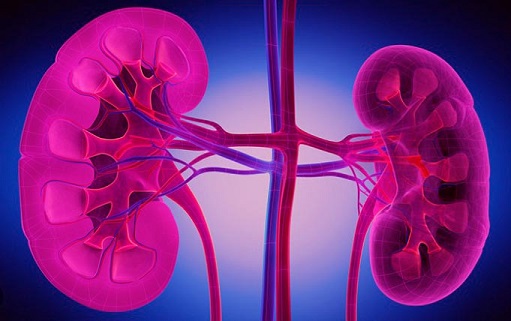Nikhil Prasad Fact checked by:Thailand Medical News Team Jul 16, 2024 1 year, 5 months, 2 weeks, 5 days, 23 hours, 51 minutes ago
Medical News: In a groundbreaking study, researchers from Wroclaw Medical University-Poland have shed light on the genetic factors that might increase the risk of developing diabetic nephropathy, a serious complication of diabetes. This
Medical News report delves into the details of their findings, revealing how specific gene variations, known as polymorphisms, in nitric oxide synthase (NOS) may influence the onset and progression of this kidney disease.
 Genetic clues to diabetic kidney disease
Understanding Diabetic Nephropathy
Genetic clues to diabetic kidney disease
Understanding Diabetic Nephropathy
Diabetic nephropathy is a common complication of diabetes, affecting both type 1 and type 2 diabetes patients. It leads to the deterioration of kidney function, often necessitating renal replacement therapy such as dialysis or kidney transplantation. This condition is closely linked with oxidative and nitrosative stress caused by high blood sugar levels, which damage the kidney's filtration system.
The Role of Nitric Oxide Synthase (NOS)
Nitric oxide (NO) is a crucial molecule involved in various physiological processes, including blood vessel dilation and blood flow regulation. NOS is the enzyme responsible for producing NO and exists in three forms: NOS1 (neuronal NOS), NOS2 (inducible NOS), and NOS3 (endothelial NOS). Alterations in the production of NO have been implicated in the development of diabetic complications, including nephropathy.
Key Genetic Findings
The study focused on five specific polymorphisms in the NOS genes: rs3782218 (NOS1), rs1137933 (NOS2), rs1799983, rs2070744, and rs61722009 (NOS3). These variations were analyzed in a group of 232 patients, categorized into three groups: a control group, a diabetic nephropathy group, and a kidney transplant diabetic nephropathy group.
Polymorphism rs3782218 in NOS1
The rs3782218 polymorphism in NOS1 was found to have a significant impact. Individuals with the C/C genotype were at a higher risk of developing diabetic nephropathy and were more likely to require renal replacement therapy. This suggests that this specific genetic variation might be a critical marker for predicting the onset of severe kidney complications in diabetic patients.
Polymorphism rs1137933 in NOS2
Conversely, the G allele of the rs1137933 polymorphism in NOS2 appeared to reduce the likelihood of renal replacement therapy. This finding indicates a potential protective effect, highlighting the complexity of genetic influences on diabetic nephropathy.
Polymorphisms in NOS3
The study also examined three polymorphisms in NOS3: rs1799983, rs2070744, and rs61722009. While some associations were observed, such as the increased presence of certain alleles in diabetic nephropathy patients, the results were not as pronounced as those for NOS1 and NOS2. However, these polymorphisms still contribute to the overall understanding of genetic factors in diabetic kidney disease.
Detai
led Study Results
-NOS1 Concentrations: Lower concentrations of NOS1 were observed in diabetic nephropathy patients compared to the control group, suggesting that reduced NOS1 activity might be linked to kidney damage in diabetes.
-NOS2 Concentrations: Similar trends were seen for NOS2, with lower levels in the diabetic nephropathy group, reinforcing the role of nitric oxide in kidney health.
-NOS3 Concentrations: The most significant differences were noted in NOS3 levels, which were markedly lower in both diabetic nephropathy patients and those who had undergone kidney transplants, compared to the control group.
Implications and Future Research
These findings emphasize the importance of genetic screening in diabetic patients to identify those at higher risk of developing nephropathy. Early detection through genetic markers like the rs3782218 polymorphism in NOS1 could lead to more proactive management and potentially delay the progression of kidney disease.
Conclusion
The study conducted by researchers at Wroclaw Medical University provides valuable insights into the genetic factors influencing diabetic nephropathy. By identifying specific polymorphisms associated with increased risk, this research opens new avenues for personalized medicine in diabetes care.
The study findings were published in the peer-reviewed journal: Antioxidants.
https://www.mdpi.com/2076-3921/13/7/838
For the latest on diabetic nephropathy, keep on logging to Thailand
Medical News.
Read Also:
https://www.thailandmedical.news/news/herbs-and-phytochemicals-tiliroside-from-the-herb-potentilla-chinensis-is-a-natural-nrf2-activator-that-helps-with-diabetic-nephropathy
https://www.thailandmedical.news/news/covid-19-associated-nephropathy-an-emerging-health-threat
